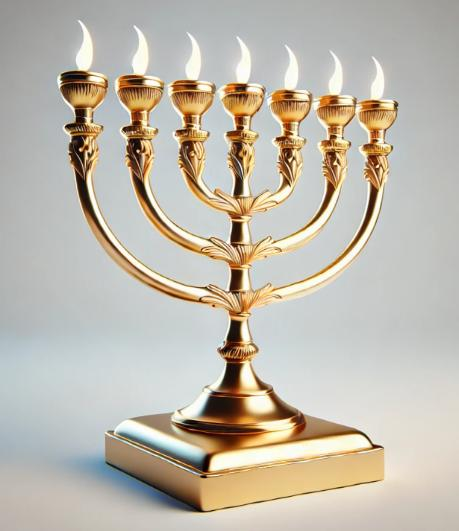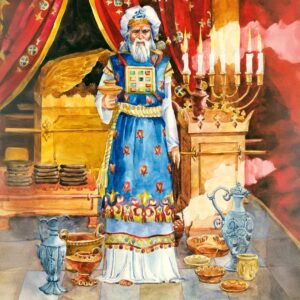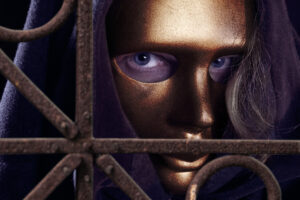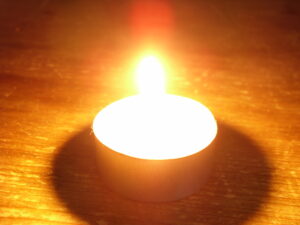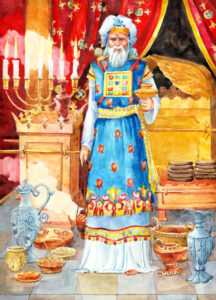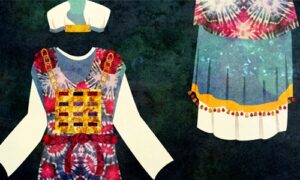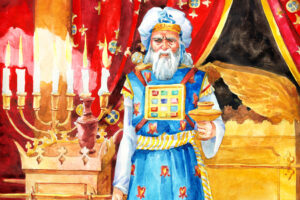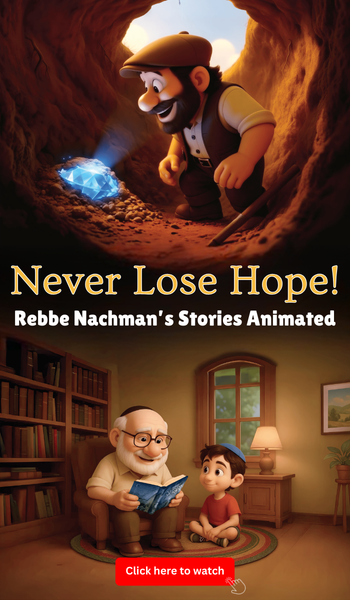Six Questions of Divine Judgment
ADAPTED FROM HIS AUDIO SHIUR ON SICHOS HARAN #5
The six questions you are asked
The Gemara tells us that a person was sent to this world to live a certain number of years. Whether he lives the entire seventy years or whether his life was cut off at an earlier date, he must appear before the heavenly court and answer six basic questions.
These six questions correspond to the six divisions of the Mishnayos. The first section is Zera’im and it deals with vegetation, the food that we actually live on. The second section is Mo’ed, holidays. The third is Nashim, laws about women, marriage and so on. The fourth is Nezikin, which deals with damages to property or dealings among businessmen. The fifth is Kodshim, sacrifices in the Beis HaMikdash, and the sixth is Taharos, purity, to avoid that which is contaminating and impure.
Six corresponding questions asked in the heavenly court [Shabbos 31a]
The first is: “Nasasa venasata be’emunah,” did you conduct your (financial) affairs in life with faith? Did you have faith in HaShem that it wasn’t your ability, or your knowledge and your greatness that created a livelihood for you, but the kindness of HaShem? Because if HaShem wants, the smartest person in the world could starve; the greatest company in the world could go bankrupt. If HaShem wants, the simplest person could make a fortune out of rags. Parnassah, livelihood and money, come from HaShem. Did you have the faith that the zera’im, the food that grew and which was given to you to live on, came from HaShem? The second question, corresponding to Mo’ed, is: “Kavata itim laTorah,” did you fix times for Torah study? Despite how occupied you were with business or family problems, did you set aside time to study Torah each day? Torah is the word of HaShem. Did you make that an important part of your life, or was it secondary? You devoted time for everything else. Did you devote time to Torah as an absolute requirement in your life? Did every single day of your life have some time devoted to Torah? Although this is the second question, the Gemara say it’s the first one for which a person is punished. The third question is: “Asakta bepiryah urviyah,” did you engage in procreation? Did you fulfill the first mitzvah of the Torah? Were you married? Did you have children? Since you were born into this world, it is your obligation and duty to propagate the Creation. The fourth question, which relates to Nezikin, is: “Tzipisa liy’shuah,” did you hope for salvation? Did you look forward every day, with true hope and anticipation, to the coming of Mashiach? Did you allow one day to go by without the thought of Mashiach? If so, that day was dead. Every Jew must constantly pray for Mashiach to come.
Without awe, one has nothing
The other two questions deal with delving into the true wisdom of the Torah. However, the Gemara says that there is one more question which, if answered in the affirmative, indicates that the person has passed an extreme test. A person is asked if he can prove that he had yiras HaShem. They tell you in heaven that all the above is worth nothing unless you prove that you have yiras HaShem. There are people who have children and study Torah, but they break the laws of the Torah. There are people who study Torah well, but they violate the Shabbos or eat treif. There are Reform or Conservative rabbis who are so hypocritical that they will read these laws and then go out to a luncheon of treif food. They learn about these statements in the Torah and then contradict them, or speak critically about the Torah as though they were authorities. These people could answer in the affirmative to the six questions, and yet in reality, they have no yiras Shamayim; they have no actual fear of HaShem.
The Menorah
The Torah says that the candelabrum in the Beis HaMikdash had seven candles [BaMidbar 8:2]. These seven candles did not all burn in the same way. The fire that came from the central candle burned directly upwards, while the three on either side were at a slant, towards the center [Menachos 98b]. The three candles on each side looked towards the center for guidance. These six, three on each side, represent the six parts of the Mishnayos—which correspond to the six questions that are asked of a person in the heavenly court. They are very holy, but they must all turn towards the central candle, which is yiras HaShem. If you have that central candle burning straight upwards, with the other six turned to the center, you have a perfect Menorah. Otherwise, the entire Menorah is worthless.
Shabbos: The Central Pillar of Creation
By the same token, we have Shabbos Kodesh. The six days of the week are represented by Shabbos itself. Shabbos provides for the six days. The six days look up to Shabbos, Shabbos being their leader, their Queen. If during the six days of the week a person looks forward to the Shabbos Queen by purifying and preparing himself, then he can enjoy Shabbos Kodesh. Shabbos stands for the future world, Gan Eden. Six days represent the days of physical labor in this world. Shabbos Kodesh itself stands for fear of HaShem. The very first word in the Torah is Bereishis, in the beginning. The word BeREiShIS (בראשית) contains two words: YaREi ShaBboS (ירא שבת) [Tikkuney Zohar #9, 24b]. Yarei means fear. Shabbos teaches us about fear, because fear and Shabbos are the central candle. They are the central pillar upon which the entire Creation exists.
Rebbe Nachman says this is all possible for a person who desires to possess emunah, faith.
But once a person studies books of evil, of philosophy, doubts begin to enter his mind and heart. The doubts, questions and contradictions begin to poison his mind and lead him astray, away from true faith, leading him into kefirah, atheism. These books are very destructive and poisonous. A person who is tempted to read them should stop and think: What will I gain? What wisdom, what depth, what knowledge is there to gain from reading these books? There is definitely no kedushah in them whatsoever, even if they were written by some of the great rabbis of the past. There is nothing holy about them, because their quotations come from the Greek philosophers, the eirev rav of the past. So, a person can only stand to lose. Why gamble on something that is a definite loser? A person can definitely lose his mind and surely lose his Olam HaBa, his Gan Eden, from delving into this. As we said, it’s a one-way ticket to Gehennom. Rebbe Nachman said that we should note how fortunate we are that Moshe Rabbeinu taught us this whole concept of faith in the very first sentence of the Torah, “Bereishis bara Elokim es hashamayim ve’es ha’aretz,” [Bereishis 1:1] in the beginning HaShem created the heavens and the earth. This is the message that he transmitted to us from heaven: Know, believe, that HaShem created the heavens and the earth. HaShem is the Creator. HaShem conducts life and will do so forever afterwards. Live with this faith, and you are living within the confines of the Torah, the confines of the eternal.
- 0 comment

